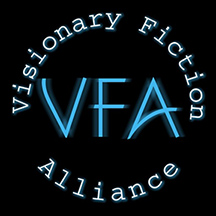Discomfort and inspiration come as a pair. It isn’t something writers usually talk about—at least I don’t often hear it discussed in forums or blogs I visit. Even a search through Google didn’t yield many results. What has been discussed is its link towards madness, and I’m fairly certain everyone out there who is right-brain oriented can sense this connection.
There is a level of bravery required to fully surrender to inspiration. In this realm, some crazy, wild, unexpected and unusual ideas can spring out of your mind. Sometimes what comes at you can be so intense, you’d swear someone or something is forcing you to throw away every reservation you have, and you write everything that pops into your mind. “Yes! Someone make me stop! I’m on fire!” you proclaim loudly. And then it all ends. Splat! “What just happened to me? I was so excited only a millisecond ago!” You look at your screen, highlight everything you’d just written and consider erasing it. Don’t do it!
If you learn to keep balance between creativity and self-judgement, you’ll develop that masterpiece you’ve always dreamed of. The right brain is fearless, unbeatable, unstoppable, all powerful. The left brain is wussy, over-analytical, vapid and self-defeating. But you need it to make sense of the amazing stuff your right brain produced for your story. It’s a constant battle between these two hemispheres. Each time I think I’ve built a permanent bridge between the two, a bomb blows it to pieces, and I’m forced to rebuild to keep the balance.
With my current manuscript, Sunrise, the whole concept of the story was foreign to me when I first started writing it. Between the omniscient narration and my large cast of main characters, I kept asking myself if I was nuts to put myself through all this. But now, 50,000 words in, I’m so fully engrossed in the story—and curious about how it will all end—my inspiration screams louder than my fear.
Tipping the balance in favor of inspiration.
This is what being in the zone feels like and why I love writing so much. This realm is free from judgement, and each time you visit, it’s like your traveling to some foreign land. There’s never a dull moment there. Even as an outliner, I have no idea what my right brain is going to throw at me when I visit the zone. The one thing I find most exciting and humbling as a writer is that structure is never permanent; it can be knocked down, and oftentimes is. Just don’t visit the zone while driving. It can be hazardous and more distracting than talking on a cell phone!
A better bridge can be built.
If you want to write your best story, realize nothing is permanent. No character, plot device or witty phrase is too sacred to sacrifice. I find by internalizing this, I keep myself permanently open to inspiration. There is definitely a level of faith required here. Faith that inspiration will come around whenever you need it. It will, as long as you’re open to receive it.
My plotting stages of Sunrise
- Developed the story structure
- Developed the characters, their personalities and arcs.
- Laid out all the chapters and wrote summaries.
- Story research
- Made a timeline of the various story threads.
- Started building the physical attributes of my story world.
- Rearranged the chapters as the story became clearer
- Started writing the manuscript.
An outline is only a skeleton.
Once you start adding the meat, new possibilities emerge. If it’s one thing I learned, the right brain isn’t a vegetarian. It likes a lot of meat, and if you’re receptive enough, you’ll be delighted to discover its appetite is limitless, and it has no understanding of writer’s block.
It can be exhausting to rework ideas, but my past experiences remind me when I pay attention to the images my right brain presents, my scenes are stronger and resonate more. I was recently given the image of a green flame, and I had no idea what it meant. I put it into the story, and it made the scene very effective. I knew I’d eventually figure out its significance. After I wrote the scene, I found my answer, went back in and added the new information. End of chapter!
Ideas are recycled.
Because I listened to my right brain, it led to my getting rid of two characters. The first didn’t drive the plot forward, but I used some of her backstory for another character. I had also written a minor character in the first chapter who was only supposed to usher in the inciting incident. He was so strong, he ended up replacing my original antagonist, but I used some of his backstory on the new character. I also added a gray parrot to the cast, rearranged the chapters and changed the resolution. Now, as I passed the mid-point, I’m expecting even more changes.
Make your voice fit the story.
I consider myself a storyteller first and a writer second. I say this because I focus my writing around my story and not the other way around. I’ll make whatever adjustments are necessary to make the story work. And I’ve made quite a few all ready! This all leads back to my blog about Donna Summer and how she explained she made her voice fit the music and not the other way around—which would’ve made her voice sound forced and unnatural. This philosophy can be applied to all forms of artistic expression. It’s about the art, not the artist—at least that’s how I see it. When I first made this subtle shift in mindset, it brought my writing to a whole new level. I wonder if Donna Summer read the Tao Te Ching!



